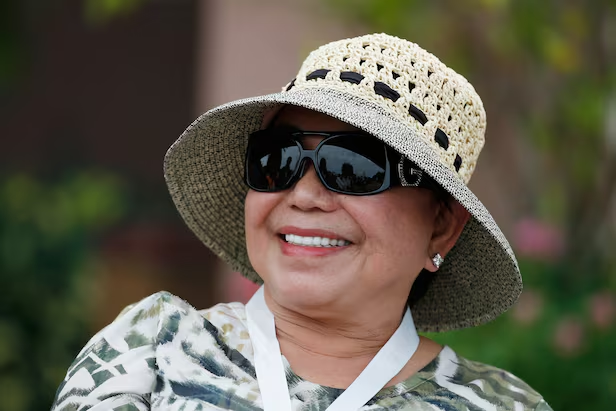It’s funny. Even though Tiger Woods failed to win 296 of the 378 events he played on the PGA Tour, I’ve never thought of him being tortured by a tough loss.
He was fine after a Sunday collapse that caused him to get boat-raced by Ed Fiori in his third pro tournament, 1996 Quad Cities Open. He was engaging after being beaten by Billy Mayfair in sudden death at the 1998 Los Angeles Open. He would later admit that finally losing a fourth-round lead in a major at the 2009 PGA Championship to Y.E. Yang caused lasting pain, but he was almost eerily cooperative afterward.
I had seen that gear early, when after failing to qualify for the match play at the 1991 U.S. Amateur in Chattanooga as a 15-year-old, Tiger, egged on by his father Earl’s good-natured needle, buried any trace of disappointment with self-deprecating humor and some positive reflections on improvements to come.
What I soon learned is that along with Earl’s devotion to his son, there was an even deeper sense of comfort with so-called failure that had been imparted by his mother, Kultida. She loved watching her son play, but her pride was in the how more than the how many. And while Tiger could rage in the heat of battle, he possessed a palpable serenity when it was all over.
“I knew that if I went out there and put myself out on the limb and I failed, hey, I had love to come home to,” Woods said for a 2007 Golf Digest story, describing a perspective he developed in junior golf. “Not everyone has that. And I know that with her, I always will. She has always, always been there for me.”
Tiger Woods and his mother Kultida Woods embrace during his 2022 induction into the World Golf Hall of Fame.
GETTYIMAGES/Sam Greenwood
I believe it was the mental armor that made him so transcendently great at closing tournaments. And why the only time he got outwardly emotional during his 2022 World Golf Hall of Fame speech was when the words “so without the sacrifices of mom” caused him to pause as he choked up, locked eyes and exchanges smiles with Tida in the audience.
Tida, who died on Tuesday at the age of 80, was immensely proud of her only child’s accomplishment, but prouder that her unconditional love had been reciprocated. I vividly remember sitting next to Tida in a van traveling through the Thai countryside in 2009 and being stunned into silence when she said, “Every night I pray to the Buddha that in the next life Tiger will be my son again.”
But it was Tida’s actions more than words that showed her total devotion to Tiger. When he was growing up, she never took a part-time job or ever left Tiger with a babysitter. It was she who first took 4-year-old Tiger to Heartwell G.C. in Long Beach for his first lesson with Rudy Duran, and who drove him all over Southern California to play in junior tournaments. As a walking scorer she would add one stroke to her son’s scores whenever he showed too much temper. Tida also began the tradition of annually replacing a tiger-striped headcover with the Thai words “Rak jak Mea” (“Love from Mom”) stitched on the back, and who convinced Tiger to wear a red shirt (his astrologically determined “power color”) on Sundays. Well into his 20s, he acquiesced to her request that he visit a Buddhist monk in Southern California once a year. And it was Tida who sat in the front row of the assemblage who watched her son give his nationally televised apology on Feb. 18, 2010.
While she was a tough disciplinarian who Tiger said he feared far more than Earl, and who used the chilling phrase “take their heart” to definitively influence her son’s competitive persona, that hard shell protected a soft underlayer. On that Thailand trip, she recounted a lonely childhood caused by her parents divorcing when she was 5. “It was hard for me,” she said. “When I was put in the boarding school, for five years I almost never went back to any of my family, just stayed at the school. Every weekend, I’d hope my father or mother would visit me, but no one ever came. I felt abandoned.
“My father, he never hug me or tell me ‘I love you.’ That’s why I always hug Tiger and tell him I love him. Because I didn’t have that.”
In return, Tiger quietly but intensely honored his mother. All three times he went back to play in Thailand after turning professional, he won. The first time was a 10-shot victory at the 1997 Asian Honda Classic by 10 shots, the second the next year at the Johnny Walker Classic, where he made up eight shots on Ernie Els with a Sunday 65 and then beat him in sudden death. Although it caused him some blowback, Woods always described himself as half Thai. “You see, Tiger will not disrespect his mother’s heritage,” Tida would say.
Tiger also funded Tida’s long philanthropic assistance to two Thai schools, one for facilities for girls who had been orphaned or abandoned (which she said would be included in her will), and another for mentally disabled children. To see this fierce woman’s tender interaction with those kids brought tears, especially after one of the boys, so grateful to receive affection, called her “Mom.”
Then with a quick glance, she uttered the words that made her contribution to the world special: “You know, we all want the love.”



